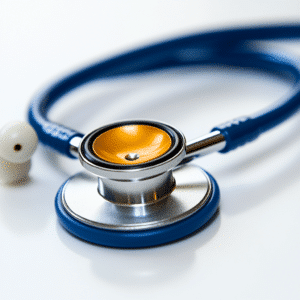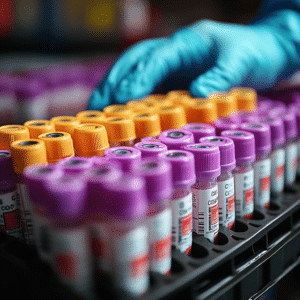Families grappling with addiction experience an overwhelming chaos that infiltrates their hearts, homes, and lives. The emotional strain is compounded by legal complexities that arise when trying to seek help for their loved ones. It’s absolutely crucial for families to be aware of the legal resources for families available to them. These resources can provide not only emotional support but also critical legal guidance, so families can better navigate some of their hardest days. Here are seven invaluable legal resources that can empower families dealing with addiction-related challenges.

1. Top 7 Legal Resources for Families Navigating Addiction
1. National Alliance on Mental Illness (NAMI)
NAMI is a prominent resource that offers vast information and support for families impacted by mental illness and addiction. They provide legal resources for families that include guides on patient rights and involuntary commitment laws. This ensures families are well-informed about their rights, especially when it comes to getting treatment for those they love.
2. Substance Abuse and Mental Health Services Administration (SAMHSA)
SAMHSA is a cornerstone for families facing addiction challenges. They offer an extensive directory of treatment facilities and support services, along with legal guidance regarding mental health patient rights and substance use disorder treatment. Their 24/7 helpline is a lifeline for families in crisis, enabling them to quickly access both legal and medical support.
3. Families Against Mandatory Minimums (FAMM)
FAMM plays a crucial role in advocating for legislative reforms concerning drug sentencing laws. The organization provides valuable resources for families dealing with the criminal justice system. Their website is packed with toolkits and legal resources that address the tough issues families face when their loved ones are incarcerated due to addiction-related offenses.
4. Legal Action Center
The Legal Action Center focuses on issues at the intersection of addiction and the law. They offer free legal assistance to families battling substance use disorders. Whether it’s helping families fight against discrimination related to addiction in employment, housing, or healthcare, this center proves to be a reliable ally.
5. The Recovery Village
The Recovery Village not only provides top-notch treatment but also offers essential legal resources for families related to addiction. They cover complex topics like guardianship and parental rights in custody disputes when addiction is an issue. This helps families better navigate the emotional and legal challenges they encounter.
6. Drug Policy Alliance
The Drug Policy Alliance works tirelessly to reform drug policies that often exacerbate the impact of addiction on families. They offer resources, including legal assistance, for families grappling with the consequences of harsh drug laws. Their advocacy plays a significant role in fostering understanding and support within communities.
7. Pro Bono Resource Center
If finances are a barrier to legal assistance, families can turn to the Pro Bono Resource Center. Many legal firms offer pro bono work for families affected by addiction. This center connects families with attorneys who specialize in addiction law, ensuring they receive critical help without the financial stress.

2. The Importance of Understanding Legal Rights for Families Battling Addiction
Navigating addiction is not just an emotional journey; it often encompasses intricate legal landscapes as well. Understanding legal rights can empower families to make informed decisions for their loved ones. Knowing about laws like the Americans with Disabilities Act (ADA) can lead to valuable accommodations in schools or workplaces, positively impacting the recovery process.
In most states, laws are designed to safeguard the rights of individuals in recovery. For example, there are protections ensuring that individuals cannot be fired solely for seeking treatment for substance use disorders. However, the applicability of these laws varies widely, often dependent upon local regulations or individual circumstances.
Families also need to grasp the nuances of health insurance laws, such as the Mental Health Parity and Addiction Equity Act. This law demands that health insurance providers offer equal benefits for addiction treatment as they do for other medical conditions. This piece of legislation is vital for families striving to secure comprehensive care for their loved ones.
3. Innovative Strategies for Leveraging Legal Resources
So, how can families truly make the most of the legal resources for families? Here are some innovative strategies:
Fostering connections among families in crisis, legal experts, and advocacy organizations creates a robust support system. Empowering families with comprehensive knowledge enables them to face adversity with courage and resilience.
In a world where laws can complicate the path to recovery, understanding and utilizing available legal resources for families is essential. By leveraging these resources, families can find the support they need and advocate for systemic changes that could benefit future generations battling addiction.
The journey may be daunting, but it’s through informed action and mutual support that families can genuinely make a difference. You can explore further support and assistance at Addiction support Organizations, Grief support Resources, and Family counseling services. It’s time to take action and turn the tide for families in need.
Legal Resources for Families
Dealing with addiction is tough, not just emotionally but legally too. That’s where legal resources for families come into play. They’re there to help guide parents through the rough waters of legalities, whether it’s regarding custody issues or navigating medical consent for their child in recovery. For instance, you might not know that some states have unique provisions for minors struggling with addiction. It’s an interesting turn of events in the justice system, akin to how political landscapes shift—the buzz around Kennedy 2024 captures similar attention in public discourse.
Knowledge is Power
Did you know that understanding local laws, like the Arizona sales tax rate, can actually impact financial decisions related to treatment options? Families might stumble upon hidden benefits or subsidies that can ease the burden of care. It’s incredible how getting educated on the law—like knowing a first-time synonym in real estate—can save you money when trying to find resources for your loved one. As families embark on this journey, having access to legal education can feel like holding a winning card in a game where the stakes are high.
Take Charge
If you’re feeling uncertain about legal processes, rest assured there’s help out there. Local nonprofits and law clinics often offer free consultations, and some have dedicated departments focusing specifically on addiction-related issues. It’s like how movie-goers plan ahead for shows—like checking the anatomy Of a fall Showtimes—preparing ahead can save time and stress. Equipping yourself with the right legal knowledge is a game-changer. Plus, there’s plenty of support through community resources designed just for families, such as detailed guides or informational workshops, especially when grappling with complex situations like a family member facing legal consequences due to addiction.
In the thick of crises, families often overlook essential resources. For instance, channels of advocacy like de Guzman provide comprehensive insights on how legal frameworks can help. Understanding your rights and knowing where to turn can transform a situation from overwhelming to manageable, ensuring you aren’t left feeling lost or defeated. Remember, these legal resources for families aren’t just about legal jargon—they’re about empowerment and hope in times of uncertainty.





























